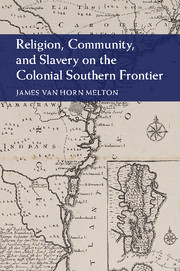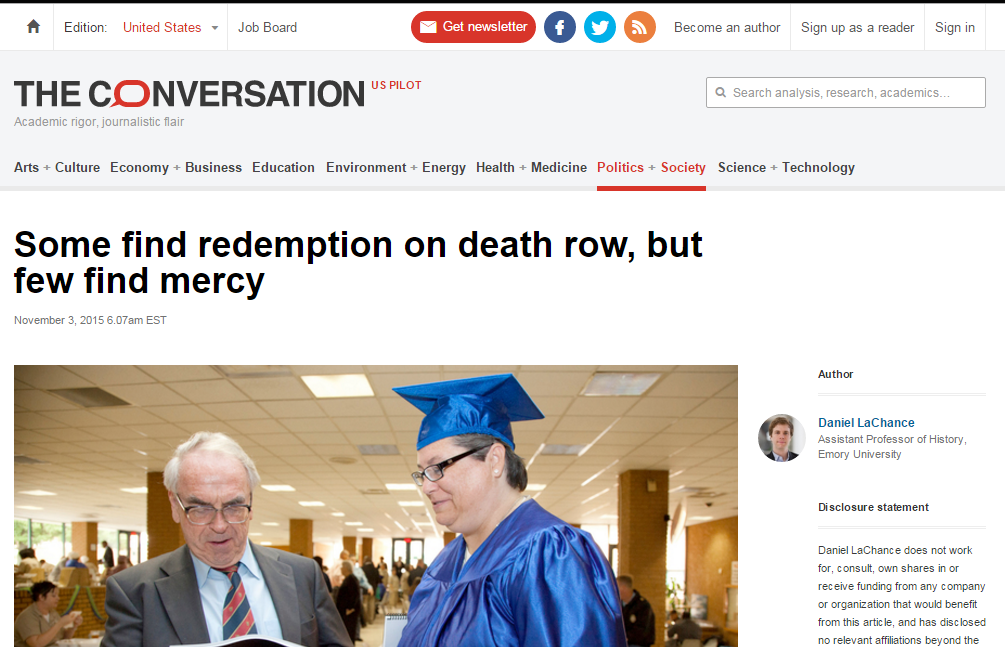Assistant Professor of History Daniel LaChance published a news analysis in The Conversation on why credible claims of redemption by condemned inmates fail to save them from execution. LaChance’s article examines the recent execution of Kelly Gissendaner in Georgia as a jumping off point for this question. Read the full story.
Category / Publications
Jeffrey Lesser on CNN.com: ‘Brazil Protests: What they Mean’
Dr. Jeffrey Lesser, Samuel Candler Dobbs Professor of History, wrote an opinion piece for CNN.com titled “What Brazil’s Protests Mean.” Lesser, an expert in the history of Brazil and current fellow of the Intercultural Dialogues group at the Institute for Advanced Studies at the University of São Paulo, discusses recent anti-government demonstrations. Here is an excerpt from the end of the piece:
One of the many joys of being a historian is that I do not have to predict the future. But seeing the weekend’s demonstrations close up, one thing was very clear — the use of the street as a location for making political points looks set to continue. And in doing so, it suggests a healthy democracy in Brazil — even during these times of political, economic, and social uncertainty.

Michael D. Thompson (Ph.D., 2009) Publishes ‘Working on the Dock of the Bay: Labor and Enterprise in an Antebellum Southern Port’
Michael D. Thompson (Ph.D., 2009), who recently was tenured and promoted to the rank of UC Foundation Associate Professor of American History at the University of Tennessee at Chattanooga, has published Working on the Dock of the Bay: Labor and Enterprise in an Antebellum Southern Port (University of South Carolina Press, 2015), a study of waterfront work and workers in Charleston, South Carolina, between 1783-1861. Thompson’s manuscript for this project was awarded the 2011 Hines Prize from the College of Charleston’s Program in the Carolina Lowcountry and Atlantic World (CLAW).

Dr. James V.H. Melton Publishes ‘Religion, Community, and Slavery on the Colonial Southern Frontier’
James V.H. Melton, Professor of History, has published a new monograph with Cambridge University Press titled Religion, Community, and Slavery on the Colonial Southern Frontier. See below for a description of the new work.
This book tells the story of Ebenezer, a frontier community in colonial Georgia founded by a mountain community fleeing religious persecution in its native Salzburg. This study traces the lives of the settlers from the alpine world they left behind to their struggle for survival on the southern frontier of British America. Exploring their encounters with African and indigenous peoples with whom they had had no previous contact, this book examines their initial opposition to slavery and why they ultimately embraced it. Transatlantic in scope, this study will interest readers of European and American history alike.

Daniel LaChance Publishes Article in ‘The Conversation’
Professor LaChance, Assistant Professor in the Emory History Department, published an article in The Conversation titled “Utah’s firing squad plan is another twist in America’s long quest for a perfect execution method.”
Here is an excerpt from the piece:
Shooting people kills them more quickly and reliably than electrocuting, gassing, or poisoning them. But it’s harder to watch or read about than lethal injection.
The raw violence of the act puts it at odds with the aesthetic values that have historically shaped the development of capital punishment in the United States. Guns uncomfortably blur the line between the righteous violence of the state and the lawless violence of the criminal. The gun is, historically speaking, the only instrument of execution that is also commonly used by criminals. Its use in executions reminds us of a past in which there was less of a distinction between the state that carried out the law and those it punished.
Indeed, in its jarring loudness, its bloodiness, and its mutilating effects on the body, execution by firing squad comes much closer to expressing the “eye for an eye” logic that has long stoked Americans’ demand for the death penalty, but that has, since the nineteenth century, been carefully excised from its actual administration.
That, in the end, is what is most newsworthy about Utah’s decision to return to the gun. In the violent imagery it conjures, execution by firing squad has the power to remind Americans of a simple truth that lethal injection has, for a long time, made it easy for them to forget: executions are acts of extreme, body-mutilating violence.
PhD Alumnus Alex Borucki and Dr. David Eltis Co-Publish Article in the American Historical Review
Emory History Department PhD Alumnus Alex Borucki co-wrote and published “Atlantic History and the Slave Trade to Spanish America” in The American Historical Review with Dr. David Eltis of Emory and Dr. David Wheat of Michigan State. The article can be found here.
Borucki is currently an Assistant Professor of History at the University of California, Irvine. Borucki’s From Shipmates to Soldiers: Emerging Black Identities in the Río de la Plata will be published by University of New Mexico Press in 2015. He is also the author of Abolicionismo y tráfico de esclavos en Montevideo tras la fundación republicana (Biblioteca Nacional, 2009) and co-author, with Karla Chagas and Natalia Stalla, of Esclavitud y trabajo: Un estudio sobre los afrodescendientes en la frontera uruguaya(Pulmón Ediciones, 2004.
David Eltis is Emeritus faculty at Emory and Research Associate at the University of British Columbia. Among many publications, he is the author of Economic Growth and the Ending of the Transatlantic Slave Trade (Oxford University Press, 1987) and The Rise of African Slavery in the Americas (Cambridge University Press, 2000), and co-author, with David Richardson, of the Atlas of the Transatlantic Slave Trade (Yale University Press, 2010). Along with Paul Lachance and Martin Halbert, he is the co-creator of the Trans-Atlantic Slave Trade Database, an open-access website containing an interactive database of more than 35,000 slave voyages that has led to major advancements in the understanding of this traffic.
New Books from Allitt, Conis, and Crais make Winter 2015 Reading List

Professors Patrick Allitt, Elena Conis, and Clifton Crais each published new works in 2014. Emory Magazine included these three faculty publications on their reading list in the Winter 2015 edition. Read the full story in the Winter edition and also check out the related post on eScienceCommons.
History Major Lily Faust Publishes Feature in Oxford University Student Magazine
Congratulations to Lily Faust, history major, who published a feature article in the Oxford University student magazine The ISIS. Her piece, “O Tell Me The Truth About Love,” appeared in The ISIS, 25 Feb. 2015 (Hilary Term 2015): 60-61. It will soon be online at http://isismagazine.org.uk/
Jonathyne Briggs (PhD, 2006) Publishes ‘Sounds French: Globalization, Cultural Communities and Pop Music, 1958-1980’
Jonathyne Briggs, Associate Professor of History at Indiana University Northwest, recently published Sounds French: Globalization, Cultural Communities and Pop Music, 1958-1980 with Oxford University Press. Briggs is an alumnus of the history graduate program.
Emily Blanck (PhD, 2003) and Rafael R. Ioris (PhD, 2009) Publish New Works
Congratulations to former Emory graduate students Emily Blanck and Rafael R. Ioris for their new publications. Blanck, Associate Professor of History at Rowan University, published Tyrannicide: Forging an American Law of Slavery in Revoluationary South Caroline and Massachusetts (University of Georgia Press). Ioris, Assistant Professor at the University of Denver, published Transforming Brazil: A History of National Development in the Postwar Era (Routledge).
